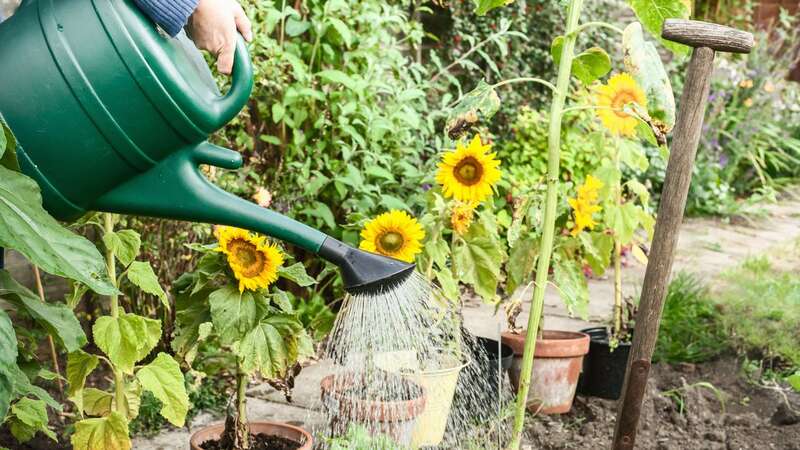After planting under optimal conditions, one challenge that continues to confront gardeners season after season is watering.
Water is essential for plant growth, but this does not mean gardeners are immune from watering blunders - they can indeed make them. It's a mistake to assume that all plants require the same amount of water. Too often, gardeners either overwater or underwater their plants, leading to growth issues and even plant death in extreme cases.
Luckily, garden guru Muhammed Haq from Norfolk Garden Buildings has highlighted five common errors made by gardeners while watering plants so these can be avoided, reports the Express.
1. Overdoing the water pressure
Seeing as most homes come equipped with hoses linked to the main water supply, it's easy to neglect the effect of water pressure on the structure of plants. The expert stressed the need for gardeners to "keep the pressure low" to avoid any damage to leaves, disturbance to soil around roots, or even complete uprooting at the base.
 Couple use bucket for loo over Xmas and New Year after raw sewage floods drains
Couple use bucket for loo over Xmas and New Year after raw sewage floods drains
Advisably, make use of an adjustable nozzle and test the pressure away from the plants before you start to water.
2. Neglecting mulch
Whether it's for garden beds or containers, applying mulch is a step every gardener should take into account. Besides suppressing weed growth and enhancing soil health, mulch's most significant contribution in terms of watering is retaining soil moisture.
Muhammed explained: "Mulch serves as a barrier that keeps moisture inside the soil, prevents additional evaporation, and protects plants from mechanical damage. It also prevents you from using excessive or unnecessary water, keeping your bills low and your use within local water use restrictions."
3. Watering at the wrong time of day
The gardening pro warned that watering plants at the "wrong time of day is one of the worst mistakes you can make" during the spring and summer.
He said: "It's important to establish a consistent watering routine for your plants to get used to. The best times of day to water your plants are in the early morning at sunrise, in the late afternoon or early evening, and then finally in the late evening before you go to sleep." He added: "Be careful - watering them when the sun's at its hottest is detrimental as it will probably cause the water to evaporate before they are able to properly absorb it."
Green-fingered Brits who do decide to water their plants in the evening should avoid getting the leaves wet, as foliage covered in water overnight can increase the risk of fungal diseases.
4. Watering only the foliage
When watering plants, it's "essential" to make sure the water goes where it is needed the most - the roots. Many gardeners fall into the "simple (though significant) error of watering only the leaves and flowers", neglecting the roots. Muhammed emphasized: "If the water is only on the foliage, it will likely evaporate before it gets to the roots where it is absorbed."
 Wind and rain to batter Brits with fresh warnings in force amid flooding fears
Wind and rain to batter Brits with fresh warnings in force amid flooding fears
Moreover, dousing the foliage can lead to fungal diseases since these pathogens thrive in moist and humid conditions. Another point to consider is that watering from above can "run the risk of disturbing the soil", potentially spreading fungus and bacteria around the plants roots.
5. Under or over watering
Gardeners often either under-water or over-water their plants. Over-watering, although usually well-intentioned, can flood the plant causing the cells to "cause them to split in half" a phenomenon known as "lysis". The expert advised that "this can be avoided" by ensuring pots have drainage holes, avoiding watering before heavy rain, and maintaining a consistent watering schedule.
Under-watering also hampers plant growth, so it's crucial to keep the soil consistently moist, which can be checked by pressing a finger an inch or two into the soil.
Read more similar news:
Comments:
comments powered by Disqus


































